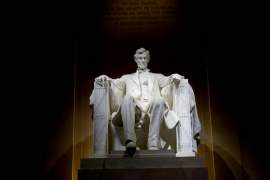
Federal Communications Commission

What is the Federal Communications Commission?
The Federal Communications Commission is an independent agency of the United States government that was officially created through Congressional Statute 47 U.S.C. With the majority of the Federal Communication’s Commissioner’s appointed by the President of the United States, the agency works to achieve six distinct goals in the areas of media, broadband, competition, the spectrum, public safety and homeland security.
The Federal Communications Commission was established by the passing of the Communications Act of 1934; this legislation acted as the successor to the Federal Radio Commission and formally required the FCC with regulating all non-federal government use of the radio spectrum, including all radio and television broadcasting and all interstate telecommunications.
As stated in section one of the Communications Act, the Federal Communications Commission’s primary mission is to “make available so far as possible, to all the people of the United States, without discrimination based on the basis of color, race, religion, national origin, or sex, rapid, efficient, Nation-wide, and world-wide wire and radio communication services with adequate facilities at reasonable charges.” Furthermore, the Federal Communications Commission aims at promoting safety of life and property through the use of wire and radio communications.
Federal Communications Commission Quick Facts
The following details outline the administration of the Federal Communications Commission:
The Federal Communications Commission was formed on June 19 of 1934
The headquarters of the Federal Communications Commission are located in Washington, D.C.
The Federal Communications Commission is responsible for the jurisdiction over the media outlets of the United States of America
The head of the Federal Communications Commission is Chairman Julius Genachowski, however, the FCC is divided and subsequently run with 5 commissioners
The Federal Communications Commission operates with an annual budget of $353 million.
What is an Independent Government Agency?
An independent agency of the United States Federal Government is a department or organization that exists outside of the federal executive departments or those headed by a Cabinet secretary. In a more specific sense, the term Independent Government Agency, is used to describe agencies that, while constitutionally operating within the executive branch, are free from presidential authority or control, as a result of the President’s limited membership within the agency.
Independent government agencies are established through separate statutes passed by the United States Congress; each respective statutory grant of authority will define the goals or mission that the agency must work towards, in addition to the substantive areas, if applicable, over which the Independent Agency may have the power of rulemaking. These agency regulations, when enforced, maintain the power of federal law.
NEXT: What is the National Endowment of the Humanities





















